Moving to Australia
Australia’s reputation for its sun, beaches, and laid-back lifestyle attracts many expatriates to its sandy shores. The country is no stranger to immigration, as the majority of the population have European ancestry, and 20% of the population today are immigrants. Immigration, large percentages from Asia, has created a diverse and multicultural environment in many Australian cities. Quality of life on the continent is relatively high, with many of the 25 million citizens flourishing in predominantly urban areas. If you are moving to Australia, the widespread use of the English language, sunny weather and relaxed lifestyle could help to build a great new life for you and your family.
Orientation
Australia is big, to put it simply. At just under 3 million square miles, it is just a little smaller than the United States of America. Due to its separation from the rest of the earth’s landmasses, the world’s smallest continent is home to rare plants and animals, making the varied landscapes a beautiful place to be. Desert land, known often as the ‘outback’, and farmland collectively cover two-thirds of the island.
Settlement on the island was mainly orientated around sources of water, meaning 90% of the population live in and around Australia’s cities. The population is concentrated in the south and south-eastern coasts in Brisbane, Sydney, Canberra (Australia’s capital) and also between Melbourne and Adelaide. Perth, the country’s fourth-largest city, is isolated on the southwestern corner of the island.
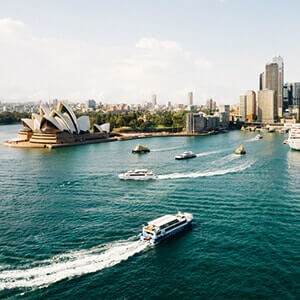
Climate
Due to Australia’s size, there are a variety of climates around the Island. Australia is the world’s driest continent, with most of the centre of the continent being arid or semi-arid. In the desert, temperatures can rise to 49C and in the mountains, they can drop to -18C. In southern Australia, the climate is more temperate: winter (June-July) is cool and summer (December-February) is warm, while Spring and Autumn have very pleasant weather. It’s vital to take precautions, especially for children, to prevent damage from the high temperatures. The sun in Australia is intense, and the country has the highest rate of skin cancer in the world.
Passports and Visas
Despite the population generally having a warm and welcoming attitude towards immigration, it is a lot more difficult to get a visa to move to Australia permanently.
Passports: All parties travelling to Australia will, first of all, need a passport that is valid for longer than they will be present in the country. This will be needed for the visa application process as well as when entering the country.
Visas: To enter the country for any length of time, the government will require you to have an approved visa. There are many different types of visas that are dependent on the length and the purpose of a stay in Australia, so there will need to be some research into which option is best for you. If relocating for work, it may be possible that your employer will have to start this process on your behalf. You will likely have to prove your skills to be approved and many people emigrate under a General Skilled Migration visa.
The application process can be done as a hard copy or online and can require much documentation to be presented, including birth certificates, bank statements and academic credentials. It’s important to get documentation perfect as getting it wrong may have lasting consequences on your chances of admittance to the country. It is sometimes required that a visa interview take place before it can be approved. It’s important to leave plenty of time as visa processing times can vary.
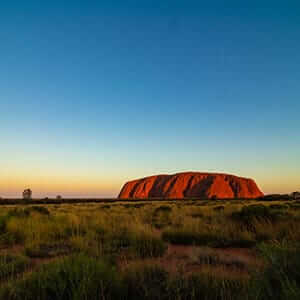
Transporting goods to Australia
Before departure, it’s a good idea for visitors to check regulations on what they can bring to the country and also declare any items to Customs if they are not sure about the rules.
Household Goods – Furniture and other household goods, such as clothes, personal items and sporting equipment, sent to Australia immediately before your departure are duty-free. Devices like mobile phones, telephones and modems must be approved by the Australian Communications Authority (ACA) before you import them. This equipment can be purchased or rented locally.
Note that there will likely be a weight or volume restriction on household imports so consider what you want to take with you carefully.
Commercial goods – Goods in commercial quantities are not allowed to pass through Customs in personal baggage. Instead, these items must be transferred to a cargo warehouse for clearance. Commercial samples should be accompanied by an international Carnet from their local Chamber of Commerce.
Prohibited Items – Certain food items are restricted upon entry from the UK, which includes meats, eggs, cheese, baby food, most vegetables, seeds and fruits. Other items must be declared to Customs for inspection. Other restricted items include:
- Products made from protected wildlife – inc. corals, orchids, turtles, alligators, crocodiles, elephants, snakes
- Firearms and ammunition
- Knives, daggers and handguns
- Medicines including narcotic drugs
- Illicit drugs
- Media that could be deemed objectionable
Australia’s Healthcare
When moving to Australia you might be wondering, “does Australia have free healthcare?” Depending on where in the world you’re moving from, the answer to this question will have different consequences. Australia, in fact, has a blend of public and private healthcare. However, their public healthcare system is pretty stretched so we would advise you to invest in private medical insurance.
Moving to Australia with your own vehicle
Customs and emissions requirements can make importing a vehicle to Australia difficult and expensive. Only right-hand drive vehicles may be licensed, and the design and safety of your vehicle must conform to Australian specifications. A Vehicle Import Approval is required, which can take a few weeks, and the Australian quarantine officers may require your vehicle to be steam-cleaned before permitting entry. Your vehicle will be assessed for Customs on its purchase price, depreciation or potential market value in Australia.
For additional information, you can request the Australian Customs Service brochure for “Importing a Motor Vehicle or Motorcycle” from the nearest Australian consulate. Alternatively, customs brokers can advise you on the importation of your vehicle. Australia’s Department of Infrastructure, Transport, Regional Development and Communications is also a good source of information.
It’s also good to bear in mind that acquiring a vehicle on arrival is also an option for people moving to Australia. Operating the vehicle is not expensive compared to other countries and new and second-hand cars are readily available, however, the price of buying a new car may be comparatively high.
Moving to Australia with your pet
Transporting a pet from the UK to Australia can be a difficult and lengthy process. A professional pet-moving service is recommended, as the knowledge required for moving a pet can be extensive. Requirements for importing a cat or dog are as follows:
- Import permit
- Health certificate
- Vaccinations and rabies inoculated on a prescribed schedule
- Microchipping
Pets imported to Australia must undergo a quarantine period, which can vary from 30 days to 120 days dependent on the origin country. Some breeds are restricted from entry entirely. Moving with a pet may also restrict your housing choices as many landlords will not permit them on their premises. For more information, read the information on pet importation provided by The Australian Department of Agriculture and Water Resources.
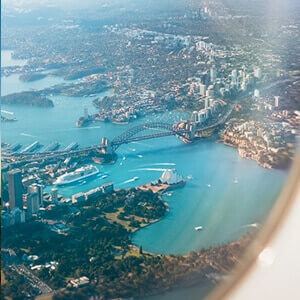
Finding housing in Australia
Contacting a relocation specialist is likely the best and easiest way to find appropriate housing for your move to Australia. Together with local estate agents, this can navigate confusing terminology and abbreviations. You might find that placing an ad for your specific needs will yield the best results. Prepare yourself for a lengthy search period and many Saturdays spent on house viewings.
Should I buy or rent in Australia?
Buying a home in Australia can be expensive. Even if buying property is your goal, we would recommend renting first. This allows you to explore your local area and check out the different suburbs and neighbourhoods for your purchase. First-time buyers must also pay stamp duty, like in the UK, however, there is a First Home Buyers Scheme that even immigrants can apply for.
There is generally a good supply of rental accommodation in and around Australian cities. It’s important to pay attention to which appliances are included in both furnished and unfurnished rental properties, as some can be found lacking most facilities. Houses with central air conditioning are far more common than those with central heating installed.
Rental prices are usually quoted by the week but paid monthly and in advance. Standard procedures will differ from state to state, however, the standard lease period is 12 months. A security bond is paid at the beginning of the lease which functions similarly to security deposits here in the UK.
Useful country-wide housing links are listed below:
Short term housing
Serviced apartments, short-term furnished accommodation, is popular in Australia. They are fully equipped and come at a range of rates, which might be a great option for people moving to Australia and searching for more permanent accommodation. Major cities will have a large supply of these in central and business districts.
If you are worried about the expenses involved in the move, we can help. Contact us today to benefit from our Relocation Expense Management Service.
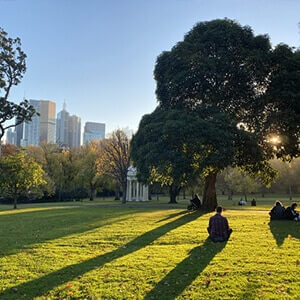
Finances in Australia
Banking in Australia is fairly simple and reliable, with a range of local, national and international branches available. The 4 major national banks are ANZ, Commonwealth Bank (CommBank), National Bank of Australia and Westpac. Checking and Savings accounts, loans, credit and debit cards and more are readily available banking services throughout Australia. ATMs and card payment is readily available throughout cities but will become more scarce in more rural areas of Australia.
For long-term stays, it is vital to open a checking account and is easy to do so within 6 weeks of arrival. Beyond 6 weeks, requirements can become more demanding. You will need your passport, residency visa and a letter from your home bank to provide identification to open an account. Salaries will be deposited directly into your bank account.
Online banking and banking apps are also in common use, allowing you easy control over your finances. Banks are generally open from 9:30 am to 4 pm Monday to Thursday, closing an hour later on Fridays. These times as well as weekend opening times can vary in different cities. It is even possible that some supermarkets have banking services available.
Currency and Exchange
Currency in Australia is the Australian Dollar, written with $ and divided into 100 cents. You will find it written as A$, AU$ or AUD. Denominations of coins and notes are similar to English pounds, with coins at 5, 10, 20 and 50 cents and $1 and $2. $5, $10, $20, $50 and $100 are all note denominations. Exchanging money is easy in cities, with exchange kiosks regularly available. Best rates are usually found at banks, but it is advisable to do your research before exchanging any currency.
Healthcare
Similarly to the UK, Australia has a government-funded health plan, which will cover those with permanent residency status. For people moving for a short amount of time from the UK, a reciprocal health care agreement is in place with Australia, meaning that they are eligible for Medicare assistance for emergency medical and hospital treatment. Qualified doctors and nurses and well-equipped hospitals provide citizens with a great quality of healthcare.
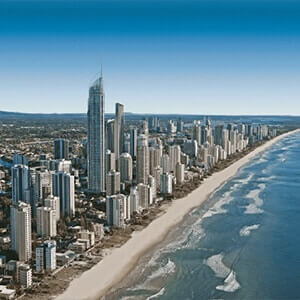
Driving in Australia
Laws and regulations are typically different in different states of Australia. This will affect your license requirements, as you can typically drive on your home-country license for a certain period of time before needing an Australian drivers license. Carry your license with you at all times when driving to avoid an instant fine. To obtain a local driving license, you will need to visit your local transport customer service centre and present:
- Your UK driver’s license
- Proof of identity, date of birth and origin on 3 original documents
- Proof of Australian address
You can also obtain an International Driver’s Permit in your country of origin. This can save you hours of time in traffic collisions as it proves that you have a valid national license that should be honoured in Australia.
After some practice, many expats say that Australian roads are quite easy to use. Traffic signs are in English and traffic rules are strictly enforced, including speed limitations. Expats typically have at least one car for flexibility of travel, though public transport connections are good in many urban areas. Fuel facilities are common in urban areas but may be few and far between in the Outback. Sold by the litre and usually self-service, fuel stations are relatively expensive in Australia.
As in all cities, rush hour in Australian cities can be hectic. Long roads and highways across the country are reliable, but when driving through the outback it’s important to follow set precautions, checking routes, weather forecasts and vehicle condition before setting off.
Social Life
There are not many designated expat groups or communities as integration is easy and common in Australia. Australians are generally welcoming, friendly and direct, with little patience for arrogance or ignorance. For people moving to Australia, previous expats have said that socialising with Australians is an easy way to feel at home. Social life is an important part of life for many Australians, meaning that socialising at clubs, work or just with friends is common. It’s customary to meet with colleagues on Friday afternoons after work, so make sure to tag along and buy a drinks round when you can.
Traditionally, Australians enjoy a life centred around fitness and being outdoors. This means that a fitness or sports club is a great way to meet locals, despite sometimes high costs, and stay active in the good weather. Though surfing and other water sports are popular, so is skiing, running and team sports like Australian football. Outside of sport, there are also clubs for art, culture and many other interests, as well as events and festivals for entertainment all year round.
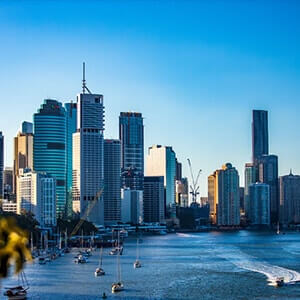
Religion
There is freedom of religion in Australia, meaning you are free to follow any religion that you choose. The highest subscribed religions in the country are Protestant and Catholic, with small percentages of Muslims, Buddhists, Hindus and many other major religions. To find religious services suitable for you and your family, you should contact your country’s embassy. Churches, mosques, temples and synagogues can be found in most of the major cities.
Dining out in Australia
Eating out with friends and family at restaurants is a popular evening pastime, so reserving is important if you want to get a table. Australian ingredients like meat, seafood and wine are known for their high quality, as well as the variety in available cuisines in cities. Dining etiquette is very similar to the UK, with clicking at staff considered rude and queuing at counters a regular sight. Alcohol is regularly consumed in Australia, where the legal drinking age is 18.
If you require assistance with your international move, request a quote for our international moving services today.
Interested in information on another country? Take a look at our other International Relocation guides.
Great customer Experiences start here
Very pleasent and helpful. Nothing too much trouble.
Mr M H moved from London, UK to Toronto, Canada
Very helpful and patient even when things got packed that we had to get out again!
Mr M E moved from Enfield, UK to Dorset, UK
Thanks to Graham, Nick and the entire crew!
Mr C D M moved from UK to Singapore
Friendly and helpful crew.
Ms T W moved from USA to Cambridgeshire, UK
